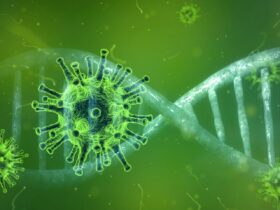According to recent research, a specific site between two olfactory genes boosts a person’s chances of losing smell or taste after catching the pathogen.
A hereditary component enhances the likelihood of someone losing their sense of smell or taste after contracting COVID-19, according to experts.
For the study, researchers evaluated data from over 70,000 participants.
Although additional research is required, the study results may help scientists understand why some individuals who get the virus lose one or both of their senses.
Scientists may be one step closer to discovering why some individuals lose their sense of smell or taste after catching COVID-19.
According to a study recently published in the journal Nature Genetics, a team of researchers uncovered a genetic risk factor that elevated the risks of a person losing their sense of smell or taste following a COVID-19 infection by 11%.
The Mistery of COVID-19-induced Smell and Taste Loss
Researchers think the cause is a locus or specific location of a gene on a chromosome, near two olfactory genes implicated to COVID-related taste and smell loss.
Loss of smell and/or taste is a typical early sign of a COVID-19 infection, with one research suggesting that up to a million individuals lost their sense of smell for six months or more after getting the virus.
According to the study, researchers gathered data from the genetic testing business 23andMe on roughly 70,000 persons who self-reported testing positive for the virus.
Although the study results give crucial insight into what may be causing COVID-19-induced smell and taste loss, researchers acknowledged that the study had limitations.
According to the researchers, the study is limited to European origin, and loss of smell or taste was incorporated in a single survey.
According to the research, loss of smell without loss of taste may differ from loss of both or loss of taste without loss of smell.
“Given this, it is unclear if our findings relate more strongly to one symptom or the other.”











Leave a Reply